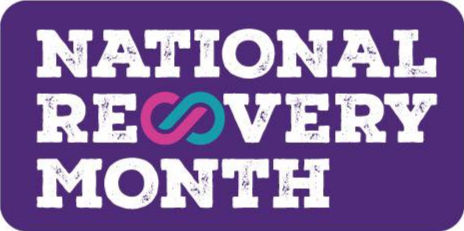Choosing Connection Over Being Right: A Parenting Wake-Up Call
- MARTI ROVEDA
- Sep 10, 2025
- 3 min read
Updated: Nov 3, 2025
Parenting teens and young adults can feel like a never-ending tug-of-war. Whether your child is navigating the normal ups and downs of adolescence or facing the added challenges of recovery, the tension is often the same. We want to guide them, protect them, and, let’s be honest, sometimes we just want to win the argument.
But here’s the truth: every time we fight to be right, we risk losing what matters most—the relationship.
Why “Being Right” Feels So Important
When kids push back, roll their eyes, or challenge our authority, it can feel personal. Our instinct is to double down and prove our point. That drive usually comes from fear. We fear they won’t respect us, make harmful choices, or repeat old mistakes.
For parents whose child is in recovery, that fear can feel overwhelming. The stakes are higher, and the pull to control can be even stronger. Yet whether your child is experimenting, struggling, or rebuilding their life in recovery, the same truth applies: connection, not control, builds trust.
What Really Builds Trust
Being right doesn’t create safety. Connection does.
When kids feel seen and respected, even in disagreement, they’re more likely to keep talking. That’s true for the teen who stayed out past curfew and the young adult navigating sobriety.
Instead of saying:
“I told you this would happen.”
Try: “I can see this didn’t turn out how you hoped. Want to talk it through?”
Instead of saying:
“You’re wrong and here’s why.”
Try: “I hear your perspective. Can I share mine too?”
These shifts don’t erase accountability. They signal: I value our relationship more than proving I’m right.
Boundaries Without Breaking Connection
Parents often ask: If I stop fighting to be right, do I lose authority? Absolutely not. Boundaries remain essential in both parenting and recovery. They just don’t have to come at the cost of connection.
Here are some examples:
“I’m not okay with you driving after curfew. Let’s talk about how we can keep you safe and maintain trust between us.”
“I can’t let you skip school, but I do want to hear what’s making it so hard to go.”
“I won’t give money for substances, but I will support your recovery appointments.”
Boundaries protect, while connection makes them sustainable.
The Long Game of Parenting (and Recovery)
Winning an argument can feel good in the moment, but it rarely creates lasting change. Parenting, and recovery, are long games. What endures is the sense your child has that you’re a safe place to return to, even after conflict, mistakes, or relapse.
That safety keeps communication open well into adulthood. It also supports recovery over the long haul.
The Role of Empathy in Connection
Empathy plays a crucial role in building connections. When we empathize with our children, we show that we understand their feelings and experiences. This doesn’t mean we have to agree with their choices. It simply means we acknowledge their emotions.
For instance, if your teen is upset about a breakup, instead of dismissing their feelings, try saying, “I can see you’re really hurting right now. It’s okay to feel that way.” This approach fosters a deeper connection and encourages open dialogue.
Where Equanimity Fits In
At Equanimity Parent Coaching, I walk alongside parents as they practice these shifts. I help them choose connection over control, hold boundaries with compassion, and learn how to stay steady when emotions run high. Parenting doesn’t come with a manual, especially when substance use or mental health struggles are part of the picture. But you don’t have to figure it out alone.
If you’re interested in exploring more, consider joining our Free Introduction to Empowerment Program. It’s a great way to start your journey toward more effective parenting strategies.
Bottom Line
This Recovery Month, let’s remember: healing and growth, whether from everyday teen struggles or substance use, don’t come from parents being “right.” They come from parents choosing patience, presence, and connection.
When you choose the relationship over the scoreboard, you give your child something stronger than any argument: trust, safety, and a foundation for lifelong resilience.
By embracing these principles, we can foster healthier family dynamics and support our children in their journey toward recovery and growth. Together, we can create a nurturing environment that encourages open communication and understanding.




Comments